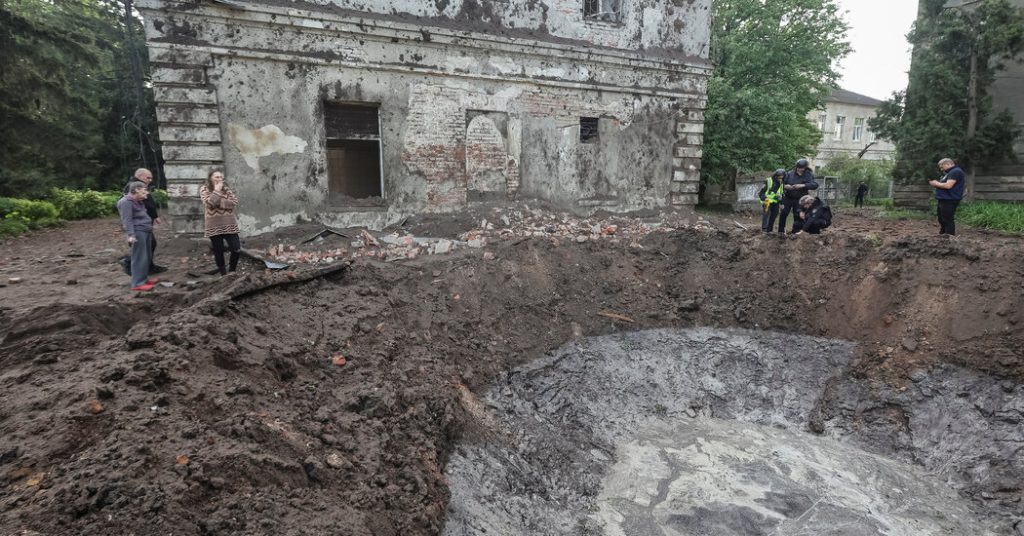In the ongoing conflict between Russia and Ukraine, both sides are aggressively targeting critical infrastructure in each other’s territories. Russian missiles have targeted Ukraine’s energy grid, causing extensive damage to power plants and other critical facilities. In retaliation, Ukrainian drones have struck refineries and military installations in Russia, with attempts to reduce Russia’s potential for waging war. The Kremlin tightly controls information about Ukrainian attacks and has arrested individuals critical of the military effort, while Ukraine has vowed to continue targeting strategic facilities in Russia with its domestically produced long-range attack drones. The attacks on oil and gas infrastructure have disrupted Russia’s oil refinery capacity and led to a ban on gasoline exports. The Biden administration has expressed concerns about these attacks, fearing they could escalate the conflict and affect global energy markets.
Russia heavily depends on oil and gas for its economy, with about a third of its national budget coming from these resources. Ukraine’s attacks on oil and gas facilities aim to strike at the heart of Russia’s wartime economy and undermine its ability to wage war. Although some allies support Ukraine’s actions as a means of self-defense, the Biden administration is wary of potential Russian retaliation and its impact on the global energy situation. The attacks on energy infrastructure in both countries are causing significant damage and threaten to have lasting consequences, with Russia focusing on depleting Ukraine’s power generation capacity and complicating its ability to function.
The Biden administration has provided military assistance to Ukraine, including Patriot batteries to counter Russian ballistic missiles. Despite this support, Ukraine’s air defense systems remain stretched and short on ammunition, making them vulnerable to Russian attacks. Ukrainian officials are calling for additional Patriot systems and missiles to save lives and protect against incoming threats. Germany has committed to supplying a fourth Patriot battery, and Ukraine is working to secure more of these systems and the necessary munitions through diplomatic efforts and alliances with other nations.
The conflict between Russia and Ukraine has intensified with both sides targeting critical infrastructure and strategic facilities. Russia has downplayed the impact of Ukrainian attacks within its territory, but the destruction of oil and gas facilities has disrupted its economy and led to a ban on gasoline exports. Ukraine’s actions aim to weaken Russia’s wartime economy and undermine its ability to wage war, as the ongoing attacks on energy infrastructure continue to escalate the conflict. The Biden administration and other allies have expressed concerns about the impact of these attacks on global energy markets and are working to support Ukraine in its defense efforts.
The attacks on energy infrastructure in Russia and Ukraine are causing widespread damage and leading to long-term consequences for both countries. Ukraine’s power generation capacity has been heavily targeted by Russia, and the damage inflicted is challenging to repair quickly. The cumulative impact of these attacks poses threats to both countries’ economies and the well-being of civilians. As the conflict continues, efforts to secure additional defense systems and support from allies are crucial for Ukraine’s defense against Russian aggression. The ongoing conflict underscores the importance of strategic alliances, military assistance, and diplomatic efforts in addressing the escalating situation between Russia and Ukraine.


